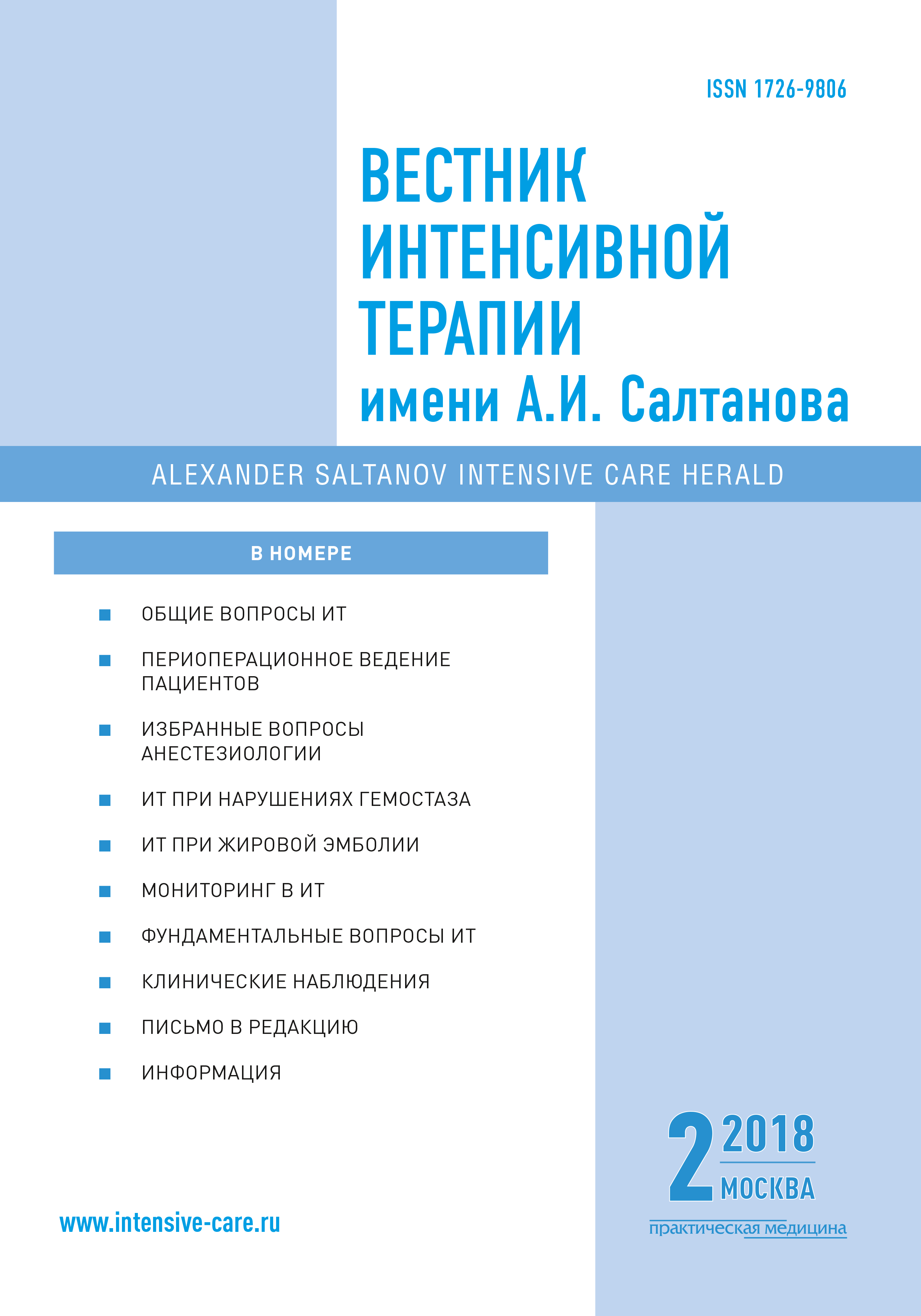Аннотация
Целью исследования явилась оценка влияния состава вдыхаемой газовой смеси на регистрируемые показатели инспираторного дыхательного объема при искусственной вентиляции легких (ИВЛ) с управляемым объемом и инспираторного давления в дыхательных путях при вентиляции легких с управляемым давлением. Для проведения ИВЛ смесью гелия и кислорода использовали аппарат Hamilton G5 (Hamilton Medical, Швейцария) с блоком, обеспечивающим возможность подачи данного вида смеси. Для имитации легких использовали TestChest® Respiratory Flight Simulator (Organis GmbH, Швейцария) с параметрами настройки, отражающими респираторную систему пациента как в норме, так и при патологии. По результатам исследования установлено, что состав вдыхаемой газовой смеси при вентиляции легких с управляемым объемом не влияет на регистрируемый инспираторный дыхательный объем на модели нормальных и патологических легких. Однако при искусственной вентиляции легких смесью гелия и кислорода с управляемым давлением выявлены статистически значимые различия регистрируемого инспираторного давления в дыхательных путях на модели легких в сравнении с проведением ИВЛ кислородно-воздушной смесью.Библиографические ссылки
- Красновский А.Л., Григорьев С.П., Алехин А.И., Потапов В.Н. Применение подогреваемой кислородно-гелиевой смеси вкомплексном лечении пациентов с внебольничной пневмонией. Клиническая медицина. 2013; 5: 38–41. [Krasnovsky A.L., Grigoriev S.P., Alekhin A.I., Potapov V.N. Application of heated oxygen-helium mixture for combined treatment of community-acquired pneumonia. Klinicheskaya medicina. 2013; 5: 38–41. (In Russ)].
- Fink J. Opportunities and risks of using heliox in your clinical practice. Respiratory care. 2006; 6: 651–660.
- Tassaux D., Jolliet P., Thouret J., et al. Calibration of seven ICU ventilators for mechanical ventilation with helium-oxygen mixtures. Am. J. Respir. Crit. Care Med. 1999; 1: 22–32.
- Brown M., Willms D. A Laboratory Evaluation of 2 Mechanical Ventilators in the Presence of Helium-Oxygen Mixtures. Respir. Care. 2005; 3: 354–360.
- McArthur C, Adams A., Suzuki S. Effects of helium/oxygen mixtures on delivered and expired tidal volume during mechanical ventilation. Am. J. Respir. Crit. Care Med. 1996; 1: 370.
- Jaber S., Fodil R., Carlucci A., et al. Noninvasive ventilation with helium-oxygen in acute exacerbations of chronic obstructive pulmonary disease. Am. J. Respir. Crit. Care Med. 2000; 161: 1191–1200.
- Oppenheim-Eden A., Cohen Y., Weissman C., Pizov R. The effect of helium on ventilator performance: study of five ventilators and a bedside Pitot tube spirometer. Chest. 2001; 2: 582–588.
- Venkataraman S. Heliox during mechanical ventilation. Respir. Care. 2006; 6: 632–639.

Это произведение доступно по лицензии Creative Commons «Attribution-NonCommercial-ShareAlike» («Атрибуция — Некоммерческое использование — На тех же условиях») 4.0 Всемирная.
Copyright (c) 2018 ВЕСТНИК ИНТЕНСИВНОЙ ТЕРАПИИ имени А.И. САЛТАНОВА

